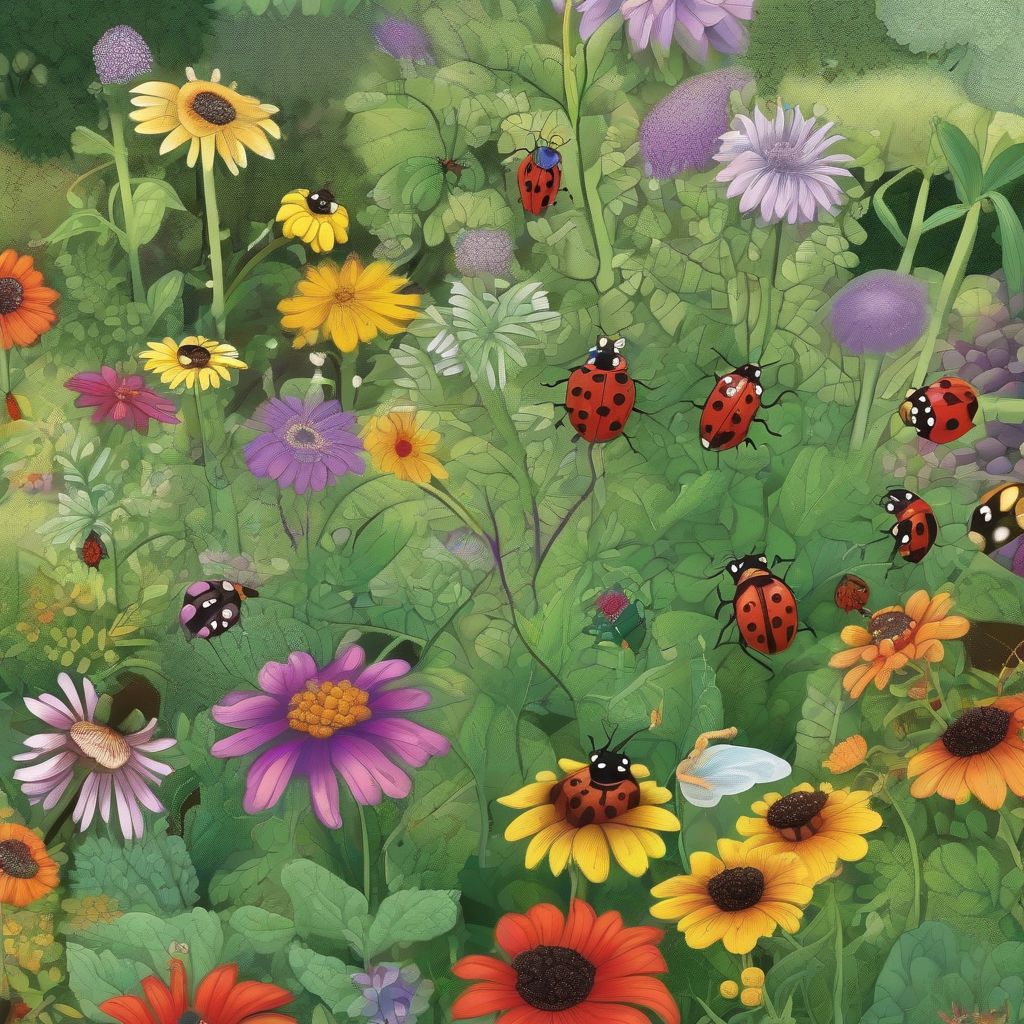Have you ever dreamt of biting into a sun-ripened tomato, warm from your own garden, knowing that it’s bursting with flavor and free from harmful chemicals? That’s the magic of organic gardening. It’s more than just a trend; it’s a philosophy that respects the natural world and nourishes our bodies. Understanding organic gardening principles and practices empowers you to cultivate a thriving garden while contributing to a healthier planet.
What is Organic Gardening?
Organic gardening is a holistic approach that focuses on building healthy soil, fostering biodiversity, and avoiding synthetic pesticides and fertilizers. It’s about working with nature, not against it. Instead of relying on quick fixes, organic gardeners nurture the ecosystem, creating a resilient and productive garden that benefits both plants and the environment. As renowned horticulturalist Alan Chadwick once said, “The ultimate goal of farming is not the growing of crops, but the cultivation and perfection of human beings.”
Key Principles of Organic Gardening
Soil Health is Paramount
Healthy soil is the foundation of a thriving organic garden. It teems with beneficial microbes, fungi, and earthworms that break down organic matter, releasing nutrients for plant uptake. Organic practices like composting, cover cropping, and crop rotation enhance soil structure, water retention, and fertility.
Feeding the Soil, Not Just the Plants
In conventional gardening, synthetic fertilizers provide a quick nutrient boost, but they can deplete soil health in the long run. Organic gardeners focus on feeding the soil with compost, worm castings, and other natural amendments, creating a sustainable nutrient cycle. Think of it like nourishing your body with whole foods instead of processed snacks – it’s a long-term investment in health and vitality.
Biodiversity is Key
A diverse garden is a resilient garden. Intercropping, companion planting, and attracting beneficial insects create a balanced ecosystem that naturally controls pests and diseases. Imagine a garden buzzing with pollinators, ladybugs feasting on aphids, and birds serenading you as you work – that’s the beauty of biodiversity in action.
Water Wisely
Water is a precious resource, and organic gardening emphasizes efficient irrigation practices. Mulching helps retain moisture, reducing the need for frequent watering. Drip irrigation and rainwater harvesting are other sustainable strategies that minimize water waste.
Weed Management the Organic Way
Weeds are a constant challenge for any gardener. Organic approaches include hand-weeding, mulching, and using flame weeders. Cover crops can also suppress weeds and improve soil health simultaneously.
Common Practices in Organic Gardening
Composting: Nature’s Recycling System
Composting transforms kitchen scraps and yard waste into nutrient-rich “black gold” for your garden. It’s a simple yet powerful way to reduce waste and improve soil health.
Crop Rotation: Keeping Pests and Diseases at Bay
Rotating crops each season disrupts pest and disease cycles, reducing the need for interventions. For example, planting legumes one year can enrich the soil with nitrogen for heavy feeders like tomatoes the following year.
Cover Cropping: A Green Blanket for Your Soil
Cover crops, like clover or rye, are planted during the off-season to protect and improve the soil. They prevent erosion, suppress weeds, and add organic matter when tilled back into the ground.
Companion Planting: Strategic Plant Partnerships
Certain plants benefit from being grown together. For instance, basil planted alongside tomatoes can repel pests and enhance their flavor. These symbiotic relationships are at the heart of companion planting.
Getting Started with Organic Gardening
Starting an organic garden can seem daunting, but it’s a rewarding journey. Begin with small steps, like building a compost bin or trying a few companion planting combinations. Don’t be afraid to experiment and learn from your experiences. There’s a vibrant community of organic gardeners eager to share their knowledge and support your journey.
 Organic Gardening Principles
Organic Gardening Principles
Organic Gardening Resources and Further Learning
There are numerous online resources, books, and local workshops available to deepen your understanding of organic gardening. Connecting with experienced gardeners in your community can provide invaluable insights and support.
Conclusion
Understanding organic gardening principles and practices is about more than just growing vegetables; it’s about cultivating a deeper connection with nature and nurturing a healthier planet. By embracing these principles, you can create a thriving garden that provides you with delicious, nutritious food while contributing to a sustainable future. What are your thoughts on organic gardening? Share your experiences and questions in the comments below! We’d love to hear from you. Also, check out our related article on “The Importance of Timing in Organic Crop Success” for more tips on maximizing your harvest. (https://organicgrowersresource.com/the-importance-of-timing-in-organic-crop-success/)



